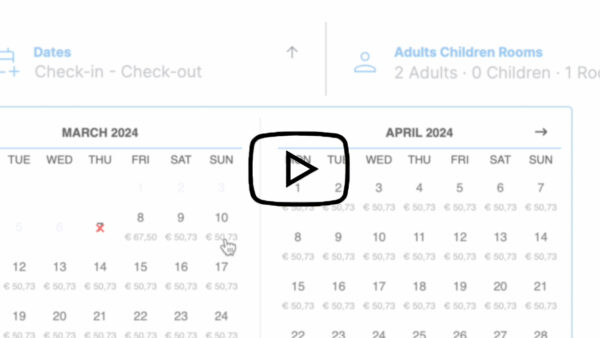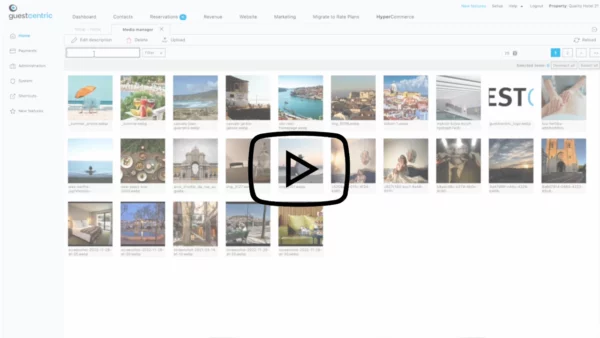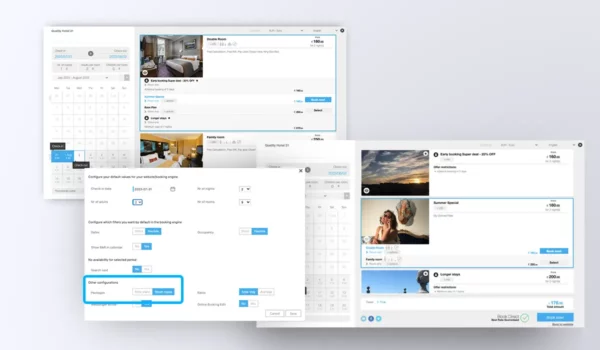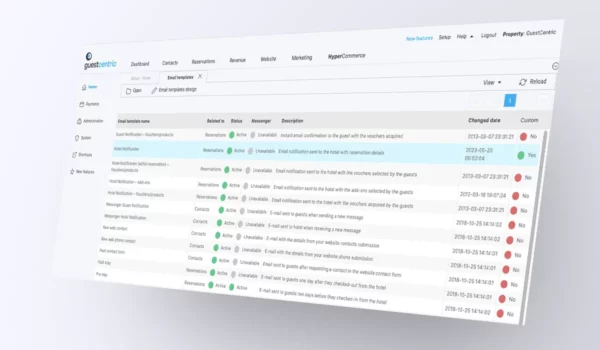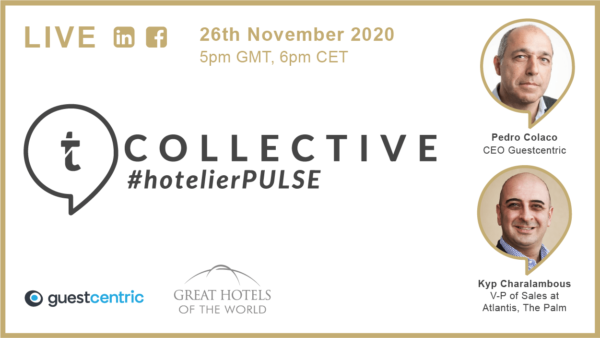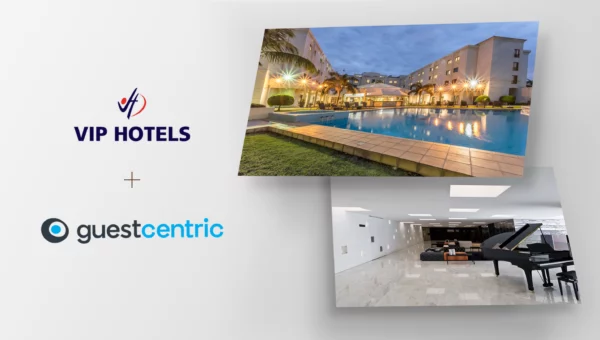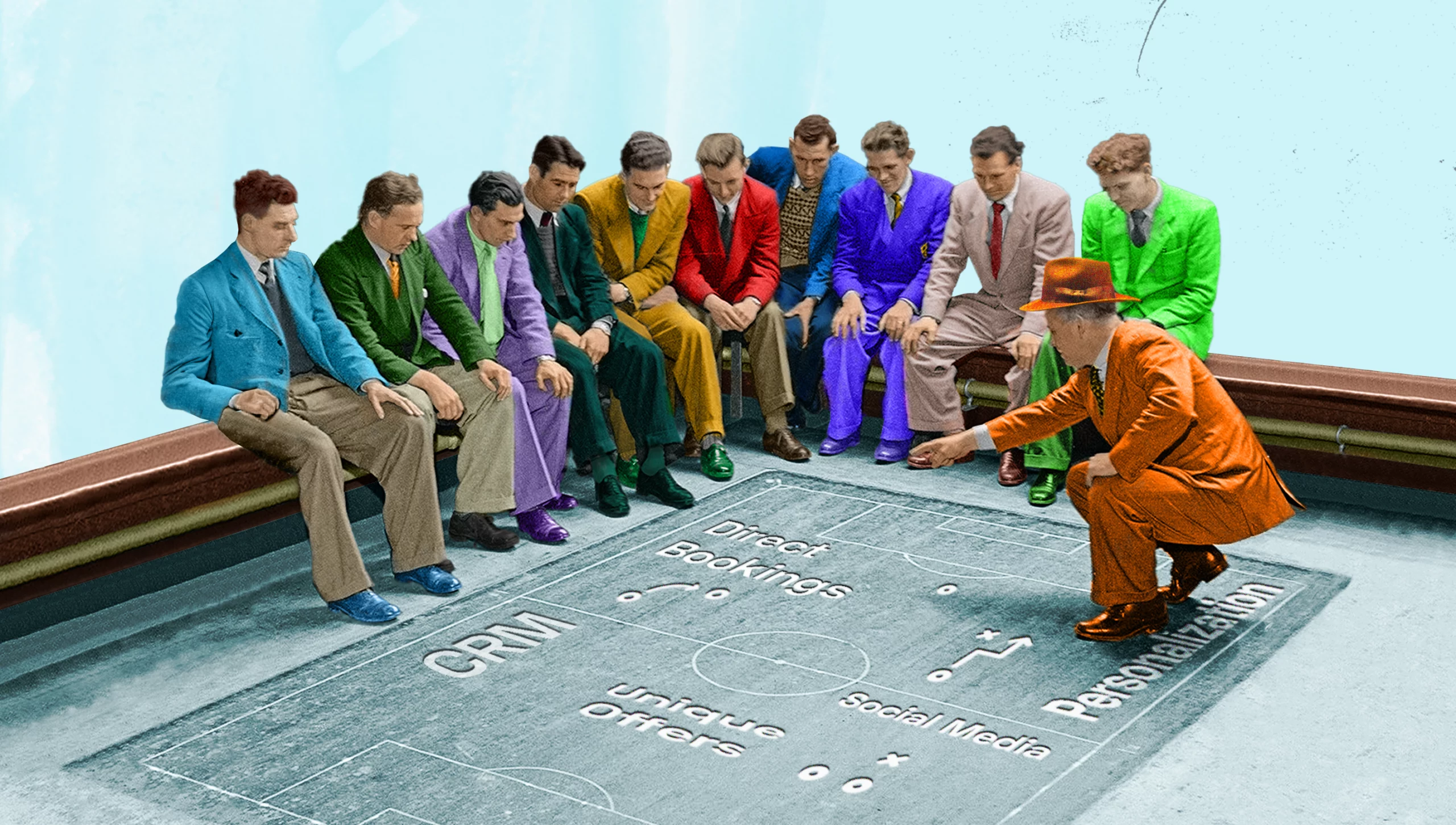Building in-destination differentiation via keywords
Reading Time: 4 minutesBuilding in-destination differentiation with smart hotel digital marketing
Hotel distribution changes every 10 years. In the 1980s it was the GDS, in the 1990s the emergence of tour operators like TUI and Thomas Cook and in the 2000s the adoption of the Internet and Online Travel Agents. At the beginning of the decade of the 2010s, we can already see a shift happening to digital marketing.
Hotel digital marketing is the response to consumer changes – consumers are much more “educated” in travel search, and they use “multi-channel”: OTAs, direct website, review sites, social media, mobile.
Never before were there so many search products: OTAs, meta-search like kayak.com, the new Google Flight Search and Hotel Finder and hipmunk.com, the “cool” new search interface on top of Orbitz’s inventory. In addition, the planning tools market is exploding. TripIt and TripCase are more traditional travel planners, but a whole slew of new social tools is emerging with Gogobot leading the pack, but also with new competitors like gtrot, flymuch and others. Lastly, new products are now transactional online: restaurants at OpenTable, tours and activities using Viator and even derivative accommodation products using AirBnB, a new darling of Silicon Valley VCs.
So, against this backdrop of exploding choices, how does a hotel manager make its brand visible online?
Mass marketing vs. Niche strategy
Hotel managers need to be realistic. Large OTAs spend tens of millions per MONTH on SEO/SEM, and advertise on hundreds of thousands of keywords. So, becoming the #1 on “hotels in New York” is probably not an option.
But a niche strategy may work. Let’s consider New York City, one of the most competitive hotel markets in the World.
When searching for “Cheap Hotel in New York” the results are dominated by advertising from booking.com, hotels.com, kayak.com, airbnb.com and organic search results from hotels.com, hotelclub.com, etc.
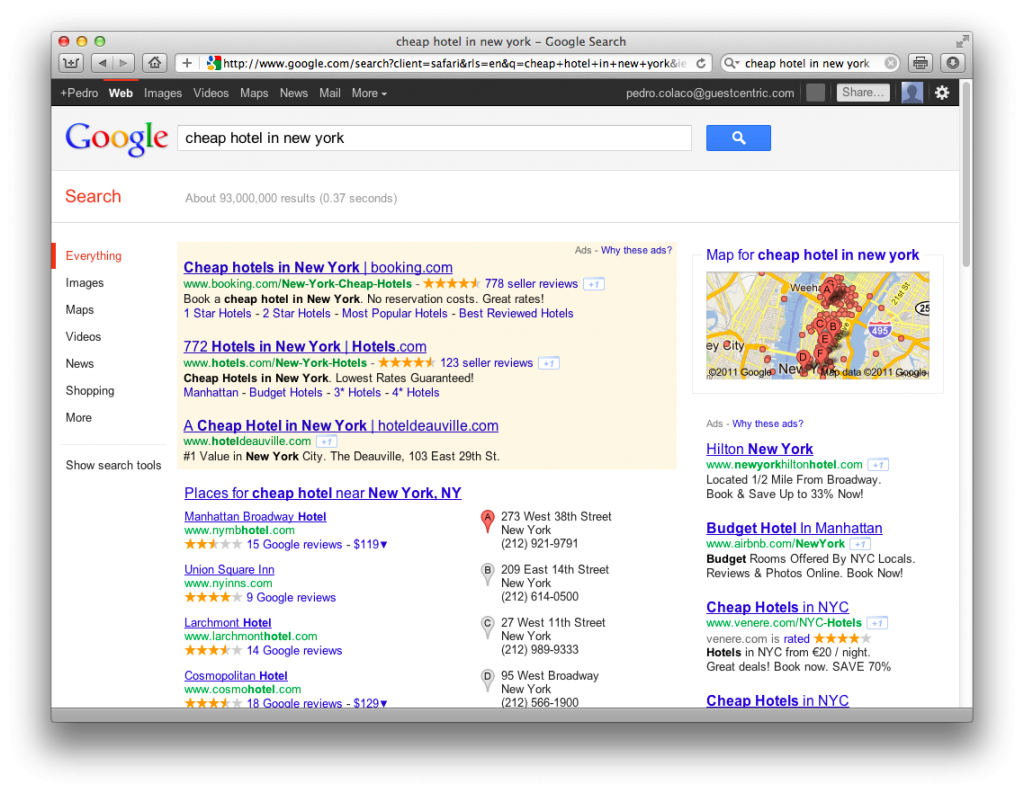
However, just by focusing on the brand identify and location provides immediate differentiation. Let’s look at three examples:
1- “boutique hotel in New York close to the Jacob Javits Center”
2- “economy hotel in New York in soho”
3- “corporate hotel in New York in chelsea”
Boutique hotels near the Jacob Javits Center
When searching more specifically for “boutique hotel in New York close to the Jacob Javits Center” the results are very different as can be seen from the screen capture below.
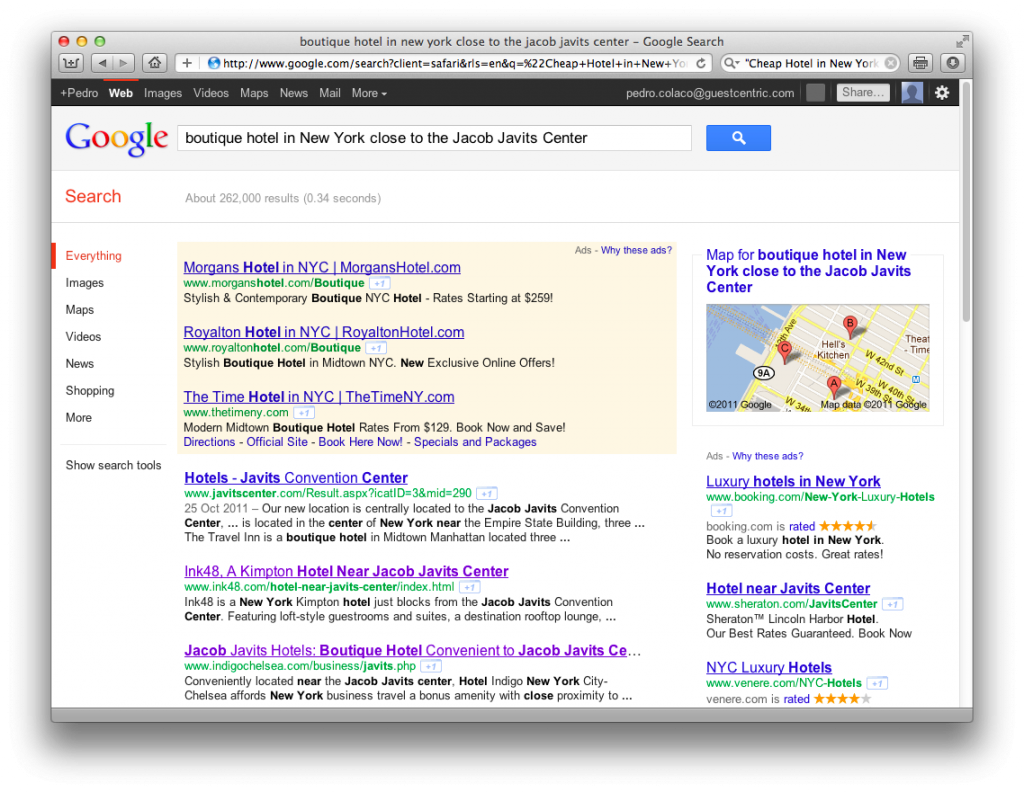
By focusing on brand and location, four things happen:
- While there is still some advertising, it is now dominated by specific brands (in our example morganshotel.com, royaltonhotel.com, thetimeny.com).
- The pay-per-click costs are lower
- The organic search results are now dominated by independents (#2 and #3 are ink48.com and indigochelsea.com)
- You have a good chance of showing up on the map
Let’s now try the other two searches and see if the same results apply:
Economy hotels in SOHO
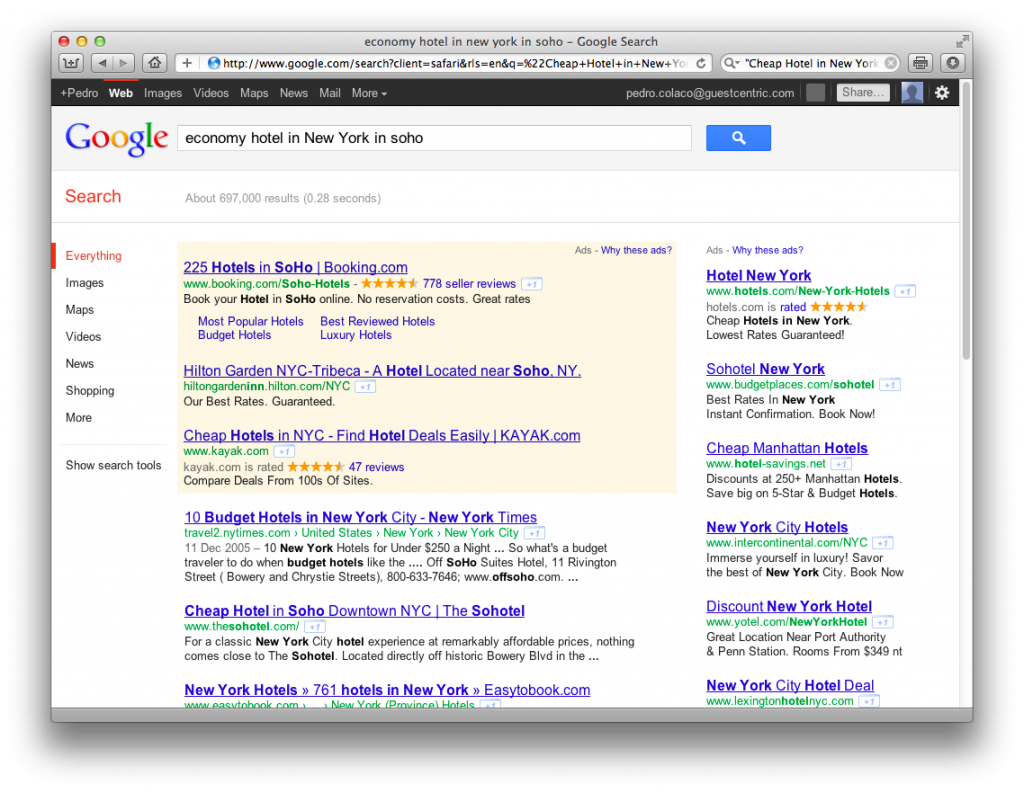
Advertising is still very competitive with booking.com, hotels.com and kayak.com. But by focusing on brand and location, three of the four things happen once again:
- The pay-per-click costs are lower
- The organic search results are now dominated by independents (#2 is thesohotel.com)
- You have a good chance of showing up on the map
Corporate hotels in Chelsea
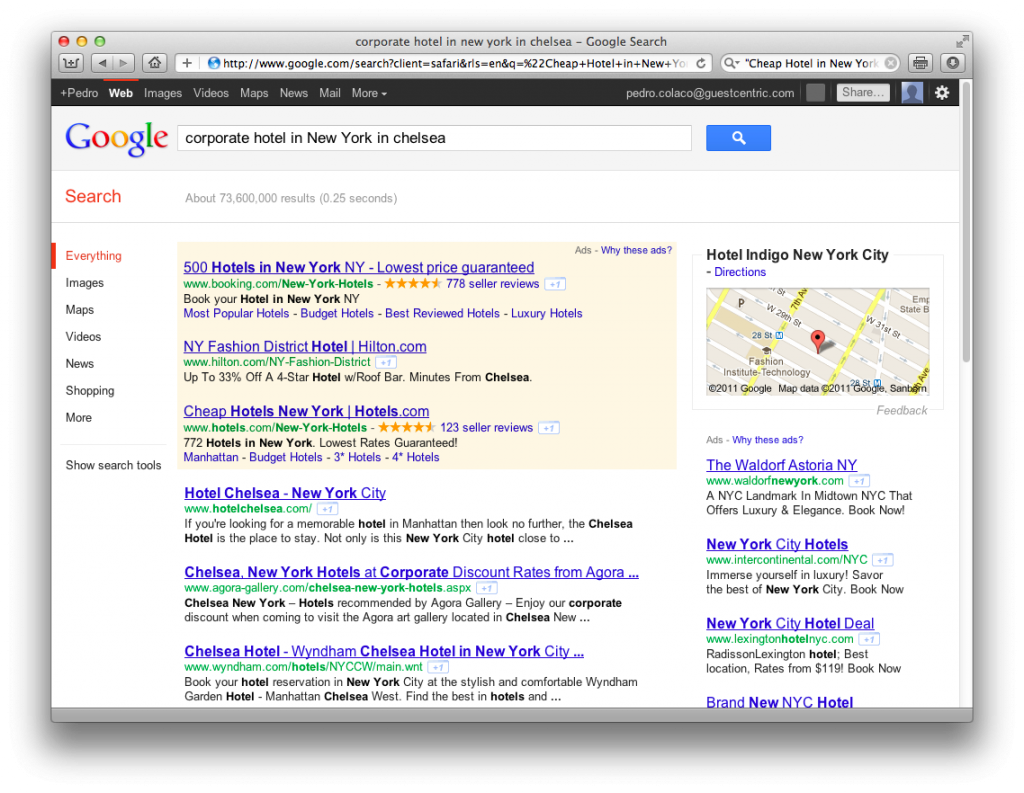
In this last scenario, advertising is again very competitive with booking.com, hotels.com and kayak.com. But by focusing on brand and location, three of the four things happen once more:
- The pay-per-click costs are lower
- The organic search results are now dominated by independents (#1 is hotelchelsea.com)
- You have a good chance of showing up on the map
Experience tags differentiate further
Another element to differentiate your hotel is to associate experience tags with it. Let’s take a look at two examples: golf and wine for hotels in california.
When searching for “golf hotel california” we expect to see high levels of competition:
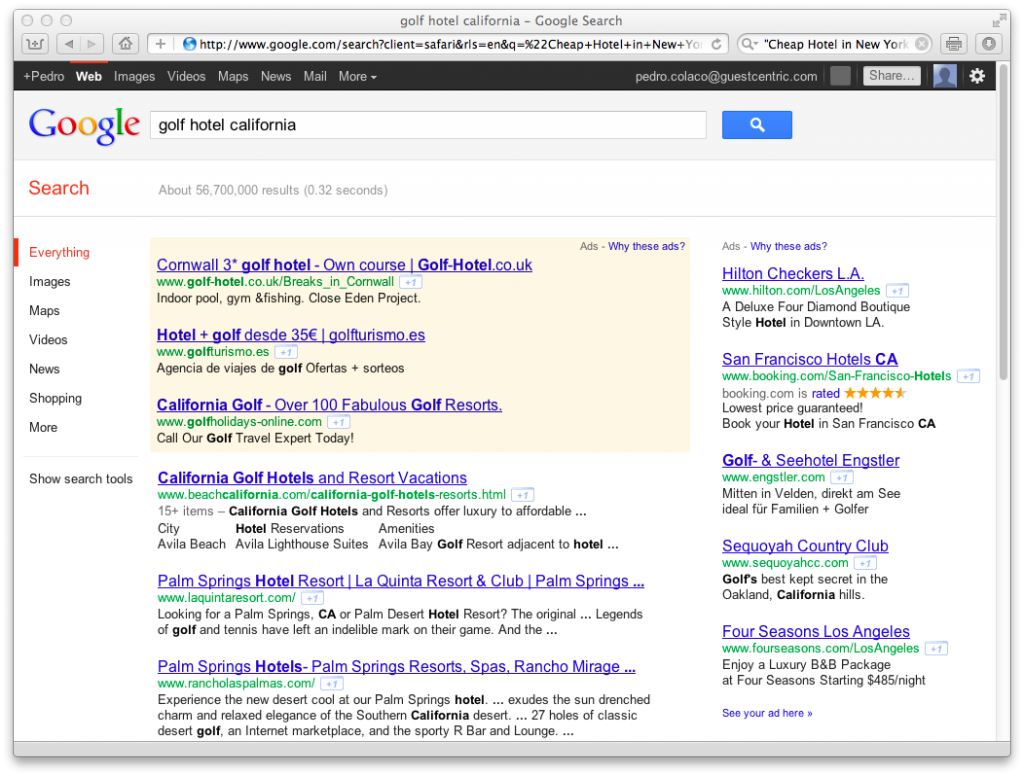
And, as expected, golf is a pretty wide term, and highly competitive with golf-oriented tour operators bidding no the keyword.
Surprisingly, the results for “wine hotel california” are quite different:
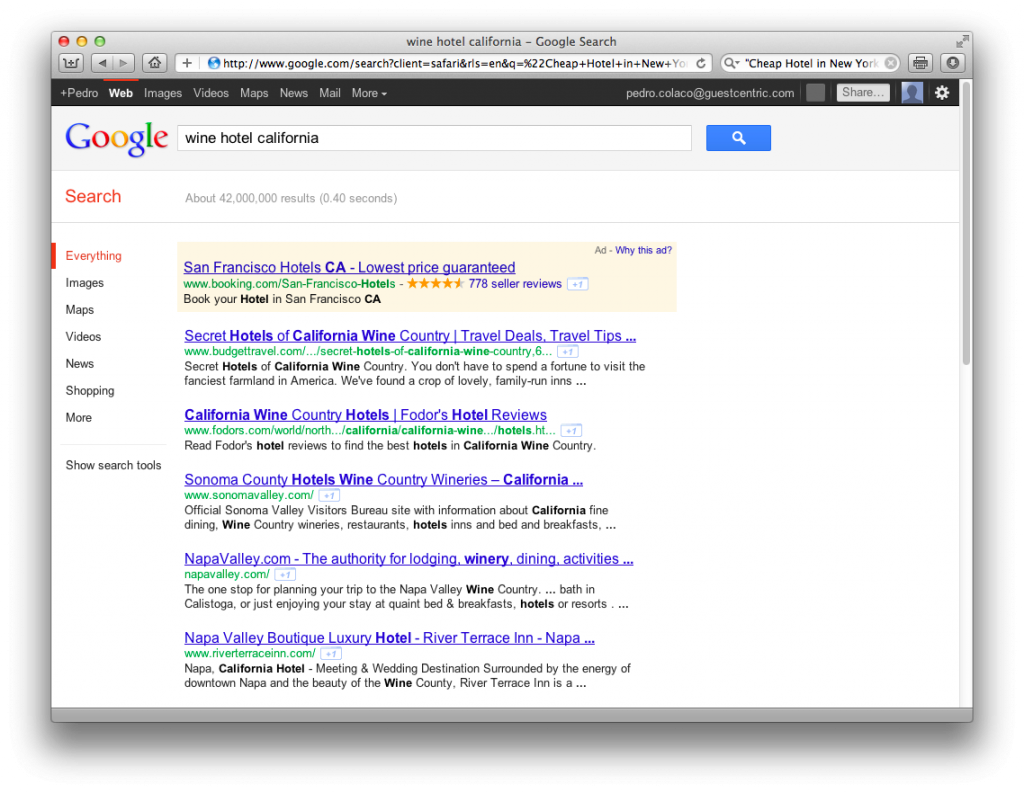
There is almost no competition, therefore an SEM/SEO strategy will work well for a hotel that is located in california and tied to the california wine experience. So, a quick search on the experience terms you can associate with your destination will probably provide a good benchmark of which keywords you should be optimizing for.
Conclusion
In conclusion, whether you are in a highly competitive market, or in a secondary market, three simple items will provide in-destination differentiation for you search optimization strategy:
- Your brand identity: economy, corporate, boutique, budget…
- The location of the property: landmarks around your hotel
- Experience tags relevant for your destination: gourmet, horses, relax, nightlife, wine, museums…
Using these three items will not necessarily make your hotel #1 on Google in your market, but you will have a good chance of having great occupation rates with guests that are going to enjoy the experience at your property.

